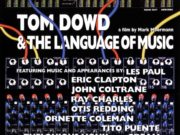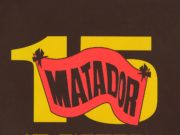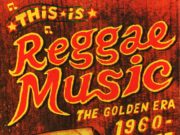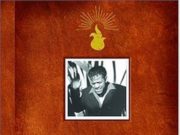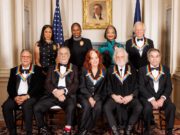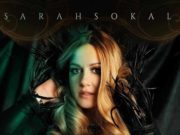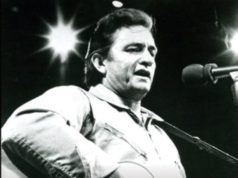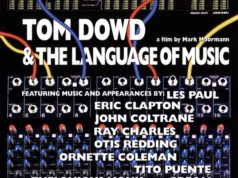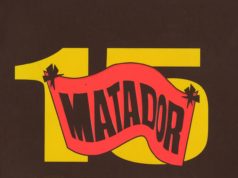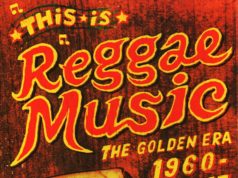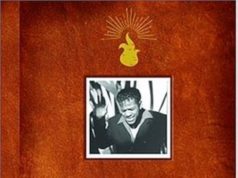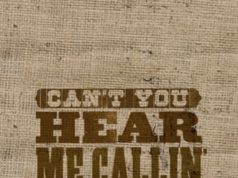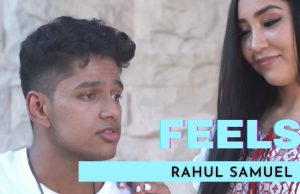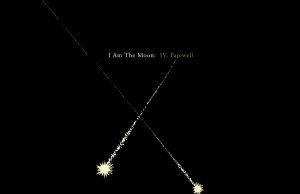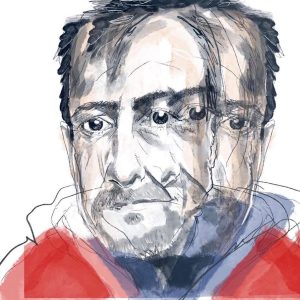 Last year, my sweetie cued up a new, promotional Spotify playlist by New York pseudo-punks Bodega. The nine-track playlist is actually just one song — Statuette On The Console, the lead single of the soon-to-be-released album Broken Equipment — but the group recorded the track in nine different languages (English, Dutch, French, German, Greek, Italian, Portuguese, Spanish and Ukrainian). It’s pretty cool:
Last year, my sweetie cued up a new, promotional Spotify playlist by New York pseudo-punks Bodega. The nine-track playlist is actually just one song — Statuette On The Console, the lead single of the soon-to-be-released album Broken Equipment — but the group recorded the track in nine different languages (English, Dutch, French, German, Greek, Italian, Portuguese, Spanish and Ukrainian). It’s pretty cool:
There are actually loads of artists who have done versions of their songs in multiple languages. Back in the 60s, it was kind of a thing. Most people have heard The Beatles’ German versions of She Loves You (Sie Liebt Dich) and I Want To Hold Your Hand (Komm, Gib Mir Deine Hand) which they reluctantly did after pressure from EMI. They eventually agreed in recognition of their time as a hard-working bar band in Hamburg before their meteoric rise to fame.
The original version of She Loves You was recorded at EMI Studios on July 1, 1963 but the original two-track tape had been destroyed, so on Jan. 29, 1964 the group had to re-record the song from scratch — along with the German-language lyrics. They did Komm, Gib Mir Deine Hand the same day, but only had to do new vocals. German singer, lyricist, radio host and TV personality Camillo Felgen was brought in to teach the boys the proper pronunciations.
As I mentioned, doing alternate language versions of their own hit songs was kind of a thing in the mid-’60s. Johnny Cash’s mariachi-themed Ring Of Fire came out in 1963 and instantly became his best-loved song. The man in black was persuaded to pay tribute to that mariachi theme by recording a Spanish version of it (and Matador, too) — though he clearly isn’t terribly comfortable in the language. He also did a German version of I Walk The Line in 1966 — Wer Kennt Den Weg — which is a little more convincing.
Just about as awkward is Dusty Springfield’s German version of her January 1964 hit I Only Want To Be With You (above).
Maybe I’m wrong, but I don’t consider German to be a terribly soulful language. Yet, during this era even Marvin Gaye was onboard. In 1965 he released a German version of his 1964 hit How Sweet It Is (To Be Loved By You) called Wie Schon Das. So, I just want to stop, and dir danken, baby.
The Rolling Stones were also forced into this trend — not just Mick Jagger as lead singer, but Brian Jones, Keith Richards and Bill Wayman all added backing vocals to an Italian version of their hit As Tears Go By, recorded on Jan. 1, 1966. The song was an early Jagger-Richards composition and was a hit first for Marianne Faithfull in 1964. The Stones recorded it in 1965 —issuing it as a single in the States first, and in the U.K. in February 1966, technically AFTER the Italian version.
David Bowie had an illustrious German period when he made three albums there in the late ’70s — Low (1977), Heroes (1977) and Lodger (1979). So it’s no surprise that there’s a German language version of Heroes’ title track. But there’s also another offering from the golden age of alternate-language versions: Back in 1969, Bowie did an Italian cover of his debut hit Space Oddity.
It’s a bit of a crazy story. In the ’60s, there was a guy named Giullio Rapetti who went by the moniker of Mogol. His specialty was reworking the lyrics of popular songs into Italian — usually not a straight translation, either. Mogol preferred to give the songs new lyrics, new meanings. Kind of like how the English and French lyrics to O Canada are entirely different.
For Space Oddity, Mogol fashioned a new song called Ragazzo Solo, Regazza Sola — which translates to Lonely Boy, Lonely Girl. It’s an entirely different song, lyrically. It was recorded by Italian duo Computers with little success despite the fact that the production and arrangement are almost identical to Bowie’s original from a few months earlier. Where it gets weird is with Bowie’s decision to record this same Italian version himself, perhaps to further bury the one done by Computers. He simply re-recorded the vocals over the original backing track and released it as a single in 1970.
In case you thought Bodega should win some sort of award for doing one of their songs in nine different languages, think again. American metal band Manowar have them beat. They did their song Father — from 2009’s Thunder In The Sky — in 16 different languages.
Peter Gabriel is widely known for doing a German version of his 1980 hit Games Without Frontiers, but he actually did a German version of that entire third self-titled album (aka Melt) as well as his fourth one (aka Security).
Even David Lee Roth did an entire Spanish version of his 1986 album Eat ‘Em And Smile, reportedly at the suggestion of his bass player Billy Sheehan. Sonrisa Salvaje was issued on LP and cassette (with a CD version in 2007) — but it wasn’t popular and ended up in delete bins almost immediately. I actually didn’t know about this album. For me, when I think of multilingual hits of the ’80s, I think of balloons.
Wow. Have a look at the guitarist. Looks so much like Let It Be-era George Harrison. The 1983 song from the debut album of German band Nena was a hit in both English and German. And, like Space Oddity, the two versions have different sets of lyrics and lyricists. The Harrison-like fellow is the one who wrote the German lyrics. The English ones were written by Kevin McAlea, who played keyboards for Kate Bush. The German version came first, and was a hit in the U.S., Belgium, Austria, Australia, Japan, Netherlands, New Zealand, Switzerland and Germany, while the 1984 English version was a hit in Canada, the U.K. and Ireland.
In 1974, Abba won the Eurovision competition with their song Waterloo. The band recorded versions in Swedish and German as well as the original English. Clearly dancing is something you can do whether you understand what’s being sung or not. Luckily, the lyrics of Gloria Gaynor’s best-known song — I Will Survive — aren’t terribly complex. She released a Spanish version of her 1978 hit in 1979.
You might be surprised to learn Blondie have multilingual versions of a number of their songs. You can hear Debbie Harry handle the lyrics of Denis, Sunday Girl and French Kissing (In The USA) in both English and French, while they cut their big hit Call Me in both English and Spanish.
Another monster ’80s hit got a Euro version — Kool & The Gang did a Spanish cut of Celebration. The 1980 No. 1 was re-released as Celebremos (above) in 1981.
It seems the 1960s trend of doing alternate-language versions of hits is all the rage again. Charli XCX did a Japanese version of Boom Clap. But Spanish really seems to be the thing. Beyonce did a Spanish version of Irreplaceable. The Spice Girls did one of 2 Become 1. Christina Aguilera did one of Genie In A Bottle (among many others), Maria Carey did one of Hero, and Kylie Minogue did a Spanish version of All The Lovers and a French version of Confide In Me.
These are all pretty common languages. But how about Pixie Lott, who did a version of her song Mama Do in “Simlish” — based on the fictional language used in The Sims video game. I mean, why not? After all, there are Klingon versions of Bohemian Rhapsody and Somewhere Over The Rainbow. And, Icelandic band Sigur Ros do all their songs in a made-up language.
Lots of artists seem quite capable in other languages. Iggy Pop has a French album (Apres). Nat “King” Cole has three Spanish albums. Celine Dion mostly sings in French and English, but has also done recordings in Spanish, Italian, German, Latin, Japanese and Chinese. Gloria Estefan has albums in multiple languages. Shakira has recordings in Spanish, English, French, Portuguese and Italian. Psychedelic folkie Devandra Banhardt has done stuff in English, Spanish, Portuguese and Japanese. And let’s not forget American punk band Gogol Bordello, whose members come from all over the world. They have songs in English, Russian, Ukrainian and Romanian.
Beck is pretty handy in Spanish — as evident on everything from his debut single Loser (“Soy un perdedor”) to the album Guero (and Guerolito). He recorded a Spanish-language version of Jackass from 1996’s Odelay.
Not to be left out, Blur did a French version of To The End from their 1994 album Parklife. The album track features French backing vocals by Stereolab’s Lætitia Sadier (who also sings in two languages all the time). The French version of the song has Blur vocalist Damon Albarn singing his usual lead vocal in French.
I made a playlist of the hits, enjoy!
• • •
Area Resident is an Ottawa-based journalist, recording artist, music collector and re-seller. Hear (and buy) his music on Bandcamp, email him HERE, follow him on Instagram and check him out on Discogs.



